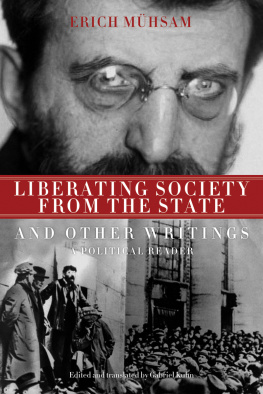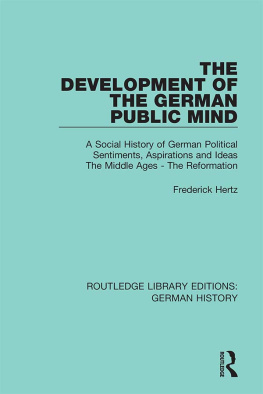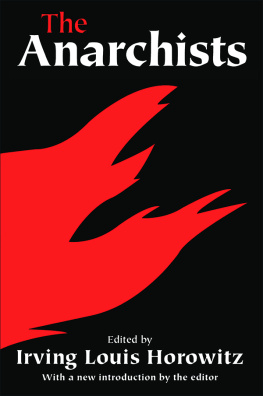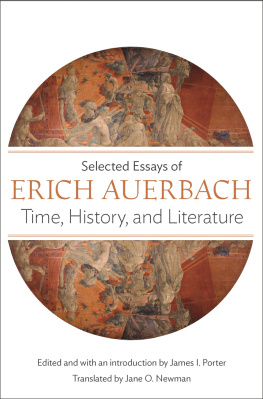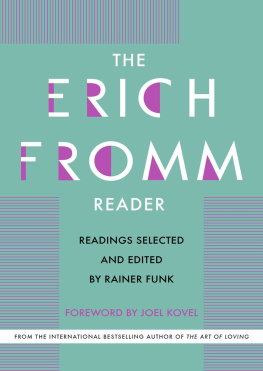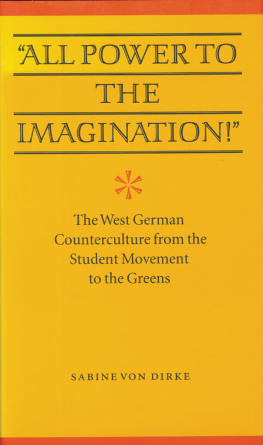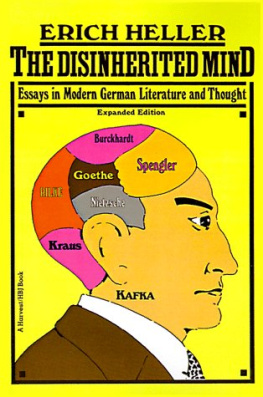
Liberating Society from the State and Other Writings: A Political Reader
Erich Mhsam
Edited and translated by Gabriel Kuhn
ISBN: 978-1-60486-055-9
LCCN: 2010927794
This edition copyright 2011 PM Press
All Rights Reserved
PM Press
PO Box 23912
Oakland, CA 94623
www.pmpress.org
Cover by John Yates/stealworks.com
Layout based on design by Daniel Meltzer
Printed by the Employee Owners of Thomson-Shore in Dexter, Michigan.
www.thomsonshore.com
Published in the EU by The Merlin Press Ltd.
6 Crane Street Chambers, Crane Street, Pontypool NP4 6ND, Wales
www.merlinpress.co.uk
ISBN: 978-0-85036-683-9
TABLE OF CONTENTS
E DITORS N OTE
N EXT TO G USTAV L ANDAUER, E RICH M HSAM H AS B EEN Germanys most influential anarchist. Johann Most and Rudolf Rocker had a bigger international impact, but Landauer and Mhsam have left the biggest mark on anarchist history in the country itself. Mhsams Die Befreiung der Gesellschaft vom Staat. Was ist kommunistischer Anarchismus?, included in this volume as Liberating Society from State: What Is Communist Anarchism?, is arguably the most widely read anarchist text in Germany.
Die Befreiung der Gesellschaft vom Staat was the programmatic summary of Mhsams political beliefs, penned one year before his death. It is presented in this book alongside numerous essays, letters, and diary entries, documenting the life of a unique personality straddling the lines between bohemia and proletarian organizing. The volumes selection contains Mhsams best-known and most frequently reprinted essays, such as Bohemia and Bismarxism, as well as texts chosen particularly with an English readership in mind, such as his articles on Sacco and Vanzetti. With few exceptions, the texts appear in chronological order, hopefully providing a comprehensive overview of the intersections of Mhsams life, thought, and politics. The order of the chapters follows the structure of the Introduction. Two appendixes provide additional material: the first contains supplementary diary entries and letters; the second documents the fate of Erichs wife, Kreszentia Zenzl Mhsam, who spent twenty years imprisoned and exiled in the Soviet Union after her husbands deatha horrendous tale of Stalinist persecution.
Apart from political essays and articles, Mhsam wrote plays and hundreds of poems. Both his work as a playwright and as a poet deserve detailed study, which has been conducted by some scholars, even in English thinker and activist, reflecting both the editors and the publishers main interest and providing an addition to the Gustav Landauer reader, Revolution and Other Writings, published by PM Press in 2010.
All of the texts in this volume are published in print in English for the first time and have been translated by Gabriel Kuhn, with the translation of Die Befreiung der Gesellschaft vom Staat borrowing elements from the online translation made available by Chris Edmonston on erichinenglish.org in 2008.
Translating Erich Mhsam
Translating texts that are roughly a hundred years old poses certain challenges. Mhsams German is antiquated and many sentences extremely long-winded. They are not always easy to read, even for native German speakers. However, readability was a priority in the translation process in order to make this book relevant for a contemporary English-speaking audience. In cases where this demanded that the original text be treated in a liberal rather than a literal way, that was the chosen path. Needless to say, no liberties were taken that, in the translators judgment, would have jeopardized the intentions or contents of the original.
The number of untranslated German terms has been kept to a minimum. Where it seemed important or inevitable to retain the original terms, explanations are provided in footnotes. Sometimes, the original German term, German name, or essay or book title follows the translation in parentheses. English translations of German names and titles follow in square brackets.
There are some terms frequently used by Mhsam that ought to be introduced with an explanation:
Geistspirit: Geist is a notoriously difficult German term to translate. Spirit is the most common English translation, and I have adapted to this. However, the philosophical notion of Geistfor example in Hegellies somewhere between intellect and soul; as such, it can apply to an individual (in which case it might also be understood as an individuals essence) as well as to a community, a people, an era, even a place; it defines individual or collective identity beyond its mere physicality (hence the major attacks on the term by materialists). Mhsam uses Geist much in this sense, being strongly influenced by Gustav Landauer, who offered the following explanation in a speech shortly before his death: Geist is when knowledge, emotion, and will unite and become an active force. In a less philosophical context, Geist can also be a close equivalent to mind or reason. On the few occasions Mhsam uses the term in this sense, it has been translated accordingly. Ghost, another meaning of Geist, plays no role in Mhsams usage.
Philisterphilistine: Mhsam makes frequent use of the term Philister, popularized as a pejorative for bourgeois scholars by Friedrich Nietzsche. As philistine (or cultural philistine) has been the most common translation of the Nietzschean term, it will be used here too. It must be understood as a term for scholars bereft of soul and spirit, however, and not as a term indicating mere lack of education, culture, or taste.
Mhsams languagelike that of all German writers at the time, male and femalewas marked by an inclusive use of male terms. Given the many problematic implications of a modern cleansing of Mhsams language, this has been reproduced in the translations.
Acknowledgments
As always, it is impossible to thank everyone who has helped in the course of compiling this book, so I will limit myself to naming the following projects and organizations without which independent scholarly research would be near impossible:
Lausannes Centre International de Recherches sur lAnarchisme [International Center for Anarchist Research] (CIRA) and the wonderful Marianne Enckell.
The International Institute for Social History (IISH) in Amsterdam and its extremely accommodating staff.
Stockholms Arbetarrrelsens arkiv, Kungliga biblioteket, and their many generous volunteers and employees.
Berlins Bibliothek der Freien [Library of the Free], including computer wizard Sven-Oliver Buchwald and anarchist historian extraordinaire Wolfgang Eckhardt.
Lbecks Erich-Mhsam-Gesellschaft [Erich Mhsam Society], under the longtime guidance of Johann-Wolfgang Goette and Sabine Kruse.
Special thanks also to Michael Ryan and Gregory Nipper for precious copyediting, to Chris Edmonston, the host of erichinenglish.com, for vital editorial assistance, to Chris Hirte for providing crucial information, and to Siegbert Wolf for steadfast support!

. See the bibliography at the end of the book.
. Edmonstons translation is an excellent rendition. The reason for using an altered version in this book is to keep the style and the terminology consistent throughout the volume.
I NTRODUCTION
Childhood and Youth
Next page
